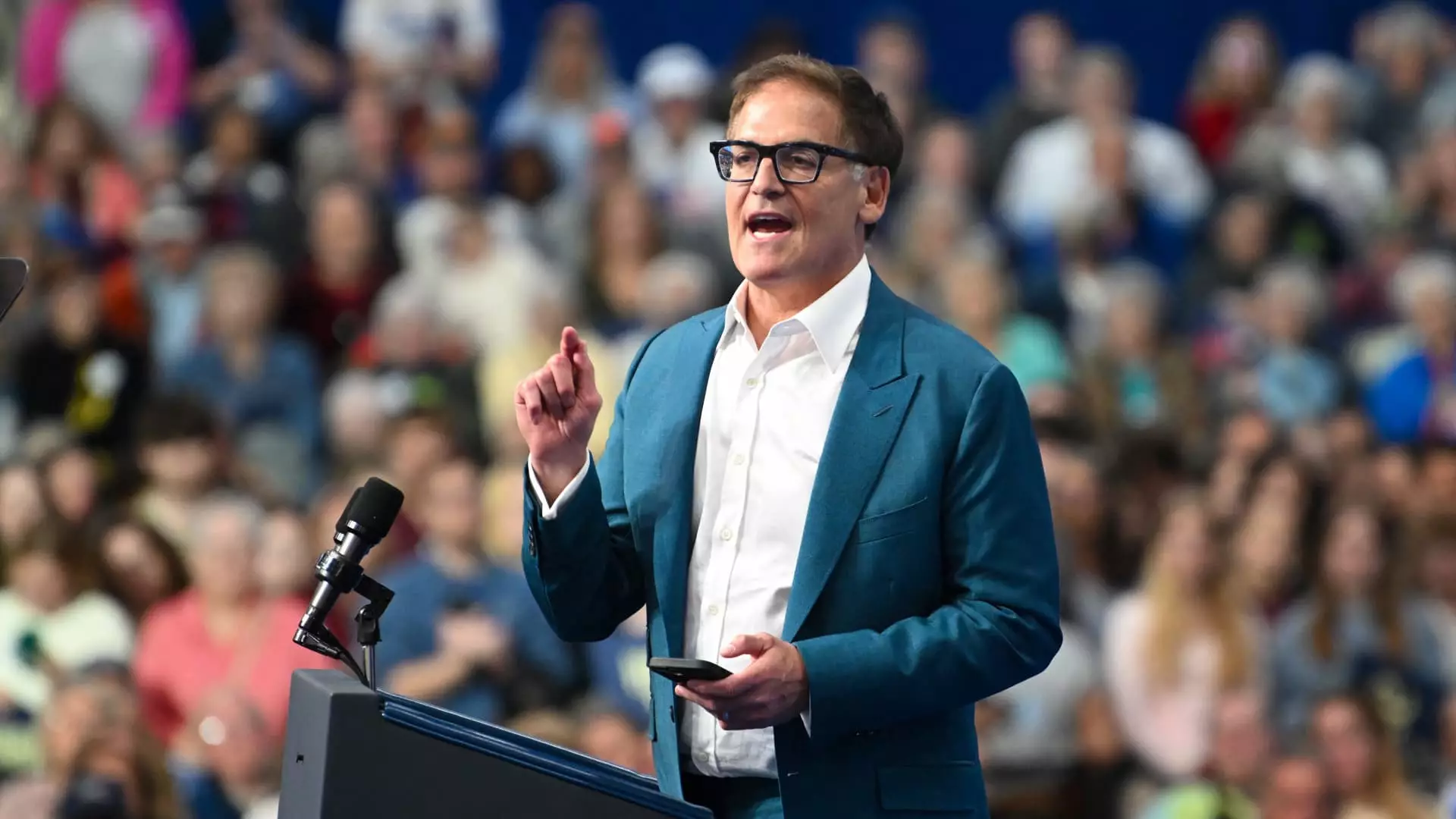Billionaire entrepreneur Mark Cuban has once again sparked discussions about his role in political dynamics, particularly in the context of the 2024 presidential race. As a prominent supporter of Vice President Kamala Harris, Cuban has openly advocated for her as she prepares to contend against former President Donald Trump. Yet, unlike many supporters who may seek political appointments, Cuban has drawn a clear line in the sand: he has no intention of taking a cabinet position, declaring that his passion lies in entrepreneurship, not politics.
Cuban’s self-identification as a “disruptor” highlights a pivotal aspect of his character. In a recent interview with ABC’s “This Week,” he emphasized, “I have no interest in being a politician of any type.” This statement underscores his preference for influencing change from the outside rather than succumbing to the intricacies and formalities that accompany political office. Disruptors often challenge the status quo; thus, Cuban’s reluctance to engage in traditional political roles raises questions. How does he reconcile his desire to influence policy without immersing himself in the political machinery?
Contradictions in Political Aspirations
Despite his avowed disinterest in cabinet positions, Cuban’s previous comments hinted at a potential pivot towards a governmental role. In the past, he proposed his candidacy for the position of Securities and Exchange Commission Chair to take a stand against current leadership. This inconsistency suggests a complex relationship with the political sphere; while he distances himself from the trappings of government, he simultaneously critiques its current players, indicating an aspiration to wield influence in regulatory landscapes.
What sets Cuban apart is his active participation in Harris’ campaign, even without financial backing. His commitment is demonstrated through media engagements and public appearances, advocating for Harris and delineating his vision for a possible administration. Cuban’s approach to campaigning shows that one can be deeply engaged in political discourse and advocacy without monetary support. This positions him as a unique campaign surrogate whose insights, particularly in corporate regulation, could resonate powerfully in election dialogues.
His recommendations for Harris’s possible administration reflect a blend of his entrepreneurial mindset and concern for regulatory frameworks. Notably, Cuban has called for the removal of Federal Trade Commission Chair Lina Khan, critiquing her antitrust strategies aimed at breaking up major tech companies. Cuban argues that such efforts may be counterproductive, proposing instead that a more entrepreneurial-friendly approach might yield better outcomes for innovation and competition in the tech sector. His commentary on these issues could signify a fresh perspective amidst the often partisan climate of political discourse.
Mark Cuban’s engagement in the political realm, punctuated by his refusal to enter it formally, raises crucial questions about the future role of entrepreneurs in shaping policy. As a disruptor, Cuban embodies a new archetype of influence—one that allows for significant participation in political conversations while avoiding the pitfalls of traditional political roles. As he supports Harris’s candidacy, his ideas could pave the way for an era where business-minded individuals champion policy reform from outside government, potentially reshaping the landscape of American politics in the process.


Leave a Reply